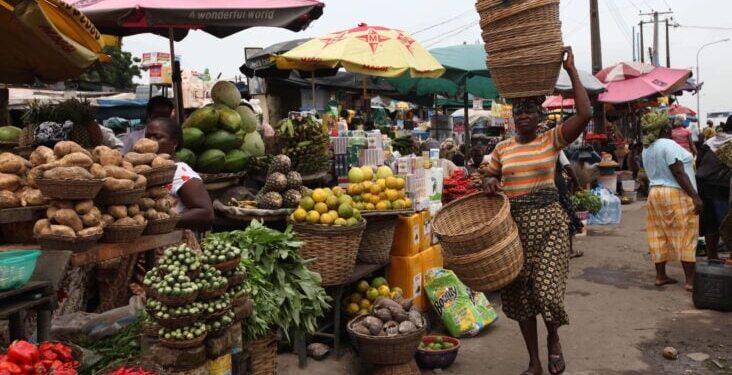The latest data on food inflation has sent shockwaves across Nigeria, as the rate in July 2023 reached a staggering 26.98% on a year-on-year basis. This increase of 4.97% points from the rate recorded in July 2022 (22.02%) has left many grappling with the implications of rising food prices on household budgets.
One of the striking aspects of this alarming food inflation surge is the absence of a corresponding increase in the minimum wage. As prices of essential food items continue to climb, the lack of a significant boost in the minimum wage exacerbates the challenges faced by everyday Nigerians.
The surge in food inflation can be attributed to various factors, including spikes in the prices of Oil and fat, Bread and cereals, Fish, Potatoes, Yam and other tubers, Fruits, Meat, Vegetables, Milk, Cheese, and Eggs. On a month-on-month basis, the food inflation rate in July 2023 was 3.45%, marking a 1.06% increase from the rate recorded in June 2023 (2.40%).
The annual average rate of food inflation for the twelve-month period ending July 2023 stood at 24.46%, marking a substantial 5.71% increase from the average annual rate of change recorded in July 2022 (18.75%). These escalating figures underscore the urgent need for interventions to mitigate the impact of surging food prices on the population.
Geographically, certain regions experienced higher food inflation rates than others. In July 2023, Kogi (34.53%), Lagos (32.52%), and Bayelsa (31.31%) topped the list for year-on-year food inflation, while Jigawa (20.90%), Sokoto (21.63%), and Kebbi (22.45%) experienced relatively slower rises.
On a month-on-month basis, the situation was somewhat similar. Kogi (6.73%), Akwa Ibom (5.64%), and Bayelsa (4.59%) faced the highest month-on-month food inflation rates, whereas Taraba (-0.21%), Jigawa (0.28%), and Yobe (0.90%) saw comparably lower increases.
As the gap between soaring food prices and stagnant minimum wages widens, policymakers and stakeholders are prompted to address this critical issue, ensuring that measures are taken to alleviate the financial burden on citizens already grappling with the high cost of living.










